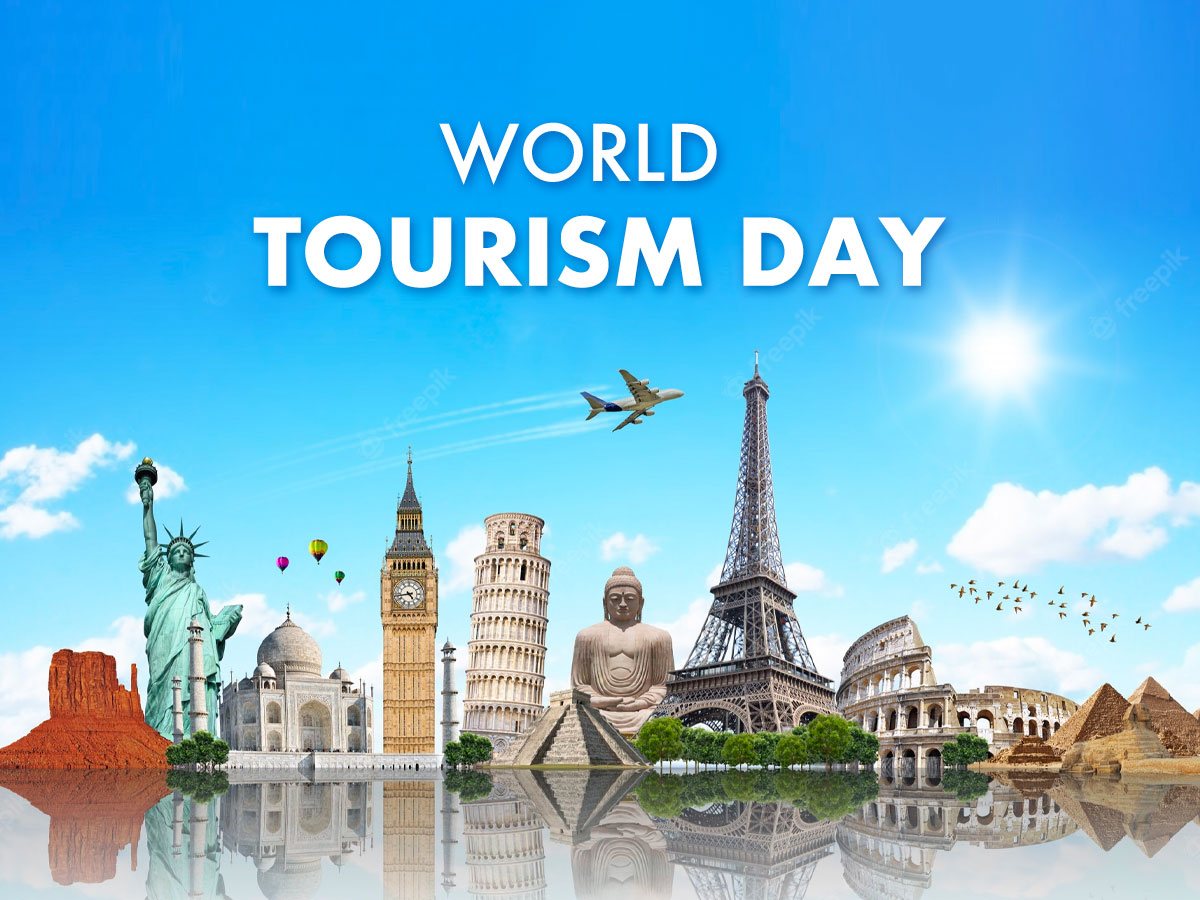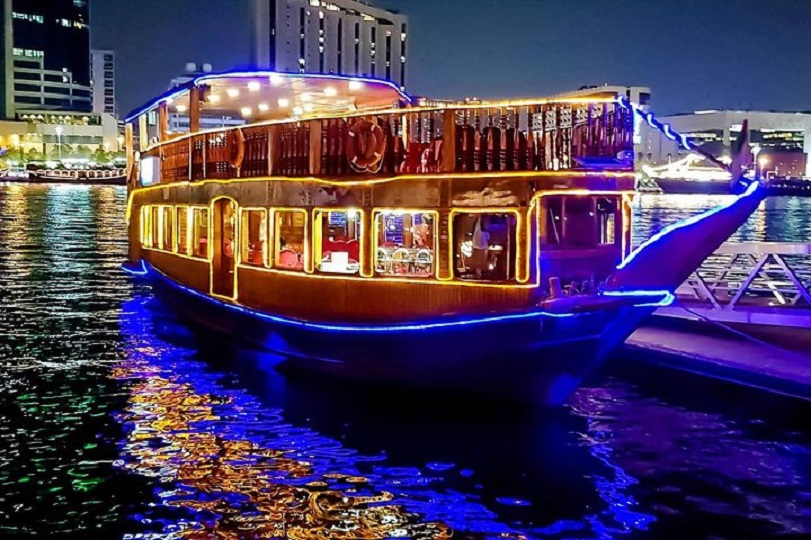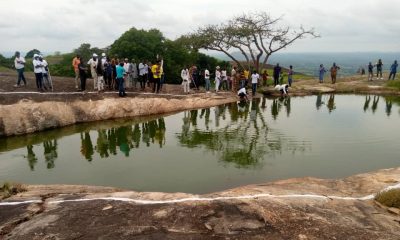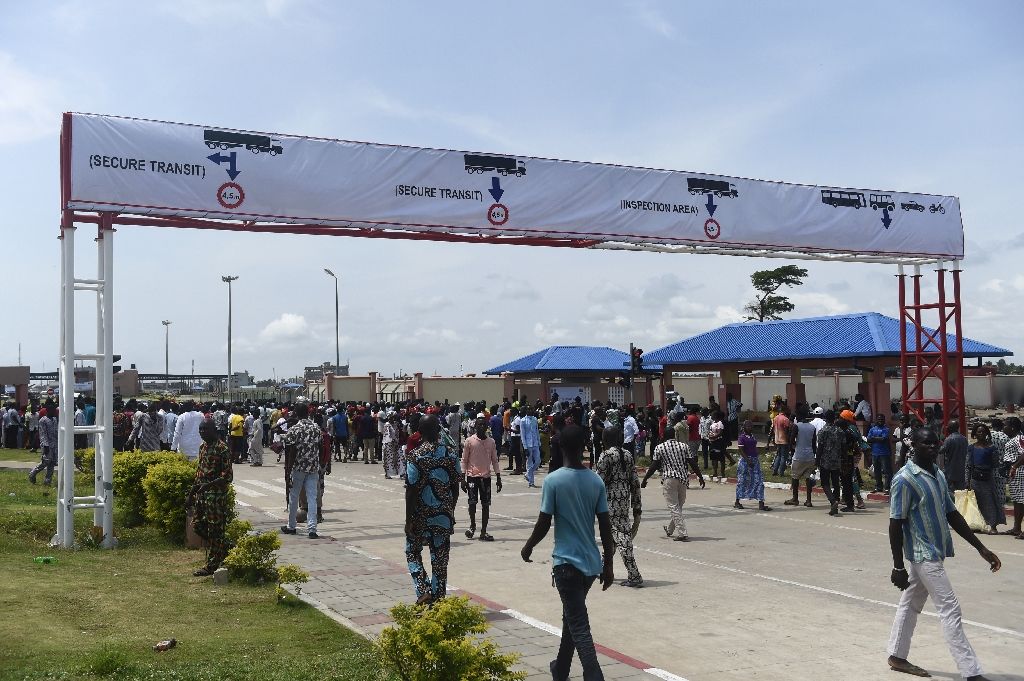Travel/Tourism
African Tourism Sector Supports Over 21m Jobs—Report
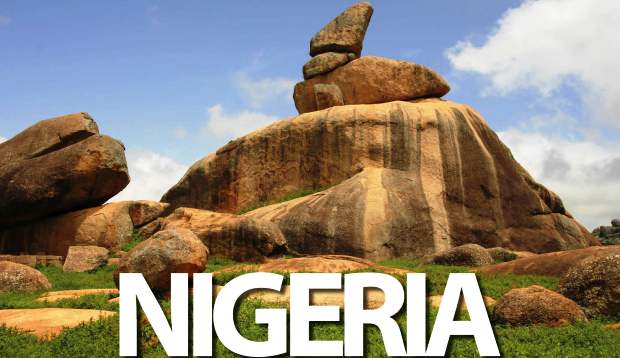

By Dipo Olowookere
A new report has described tourism in Africa as a flourishing industry that supports more than 21 million jobs, or 1 in 14 jobs on the continent.
It was also projected that during the next decade, tourism’s continued growth is expected to generate an additional 11.7 million jobs in Africa.
Four out of 10 international tourists in Africa come from the continent itself, according to the new UNCTAD Economic Development in Africa Report 2017: Tourism for Transformative and Inclusive Growth.
In sub-Saharan Africa, this number increases to two out of every three tourists whose travels originate on the continent. Data backing this key finding show that, contrary to perception, Africans themselves are increasingly driving tourism demand in Africa.
Over the last two decades, Africa has recorded robust growth, with international tourist arrivals and tourism revenues growing at 6 per cent and 9 per cent, respectively, each year between 1995 and 2014.
Focusing on tourism for transformative and inclusive growth, this year’s report encourages African countries to harness the dynamism of the tourism sector.
By collecting and comparing data from two different periods, 1995–1998 and 2011–2014, the report reveals that international tourist arrivals to Africa increased from 24 million to 56 million.
Tourism export revenues more than tripled, increasing from $14 billion to approximately $47 billion. As a result, tourism now contributes about 8.5 per cent to the continent’s gross domestic product (GDP).
The First Ten-Year Implementation Plan of the African Union’s Agenda 2063 aims at doubling the contribution of tourism to the continent’s GDP. To meet this target, tourism needs to grow at a faster and stronger pace.
“Tourism is a dynamic sector with phenomenal potential in Africa. Properly managed, it can contribute immensely to diversification and inclusion for vulnerable communities,” said Mukhisa Kituyi, the Secretary-General of UNCTAD.
To realize the potential of intraregional tourism for the continent’s economic growth, African Governments should take steps to liberalize air transport, promote the free movement of persons, ensure currency convertibility and, crucially, recognize the value of African tourism and plan for it. These strategic measures can have relatively fast and tangible impacts. In Rwanda, the abolition of visa requirements for fellow members of the East African Community in 2011 helped increase intraregional tourists from 283,000 in 2010, to 478,000 in 2013.
Another important theme highlighted in the report is the mutually beneficial relationship between peace and tourism. Peace is of course fundamental for tourism. The mere appearance of instability in a region can deter tourists, leading to devastating, long-lasting economic consequences. However, the perception of danger does not always correspond with reality.
The 2014 Ebola outbreak in Western Africa had a very high cost in terms of tourism numbers and revenue lost across the entire continent.
Despite being limited to relatively few countries in the western part of the continent, tourist arrivals and bookings fell in countries as far from the outbreak as South Africa and the United Republic of Tanzania.
The report notes that the economic impacts of political instability can be quite significant and long-lasting. For example, following political instability in Tunisia, total tourism receipts in 2009–2011 declined by 27 per cent on average, from $3.5 billion in 2009 to $2.5 billion in 2011.
Addressing safety and security concerns and swift responses to crises by African Governments and regional institutions are paramount to the growth of tourism in Africa. Promoting strategies aimed at improving Africa’s image in the global media are also critical in ensuring the sector’s recovery after conflict or political unrest.
Travel/Tourism
Middle East Tension: Nigeria Halts Pilgrimages to Israel

By Adedapo Adesanya
The Nigeria Christian Pilgrim Commission (NCPC) has suspended pilgrimages to Israel and all other Middle East nations owing to the escalation of tensions in the Gulf region.
The Executive Secretary of NCPC, Bishop Stephen Adegbite, said during a press briefing in Lagos on Tuesday that every pilgrimage of the commission, as well as of the private pilgrimage operators, has been suspended until security in Israel and all the Middle East returns to normalcy.
Bishop Adegbite also assured that the over 500 pilgrims that made up the last batch of the 2025 pilgrimage have safely landed in Nigeria on Tuesday.
Recall that the United States and Israel have carried out waves of airstrikes across Iran, and Iran has retaliated with drone and missile attacks against US-aligned countries across the Middle East.
The campaign has killed several of Iran’s top military and political leaders, including the supreme leader, Ayatollah Ali Khamenei.
Iran retaliated the death of its supreme leader by targeting US military assets in several Gulf countries, with missiles reportedly striking sites in Bahrain, Qatar, Kuwait, and the United Arab Emirates (UAE).
The US military has acknowledged the deaths of six service members, while the Iranian Red Crescent Society said more than 500 people have been killed in the country.
This development has made the region unstable and puts Nigerians making pilgrimage to the Middle East at risk.
Travel/Tourism
Festive Travel Surge: FCCPC Flags Fare Manipulation by Airlines
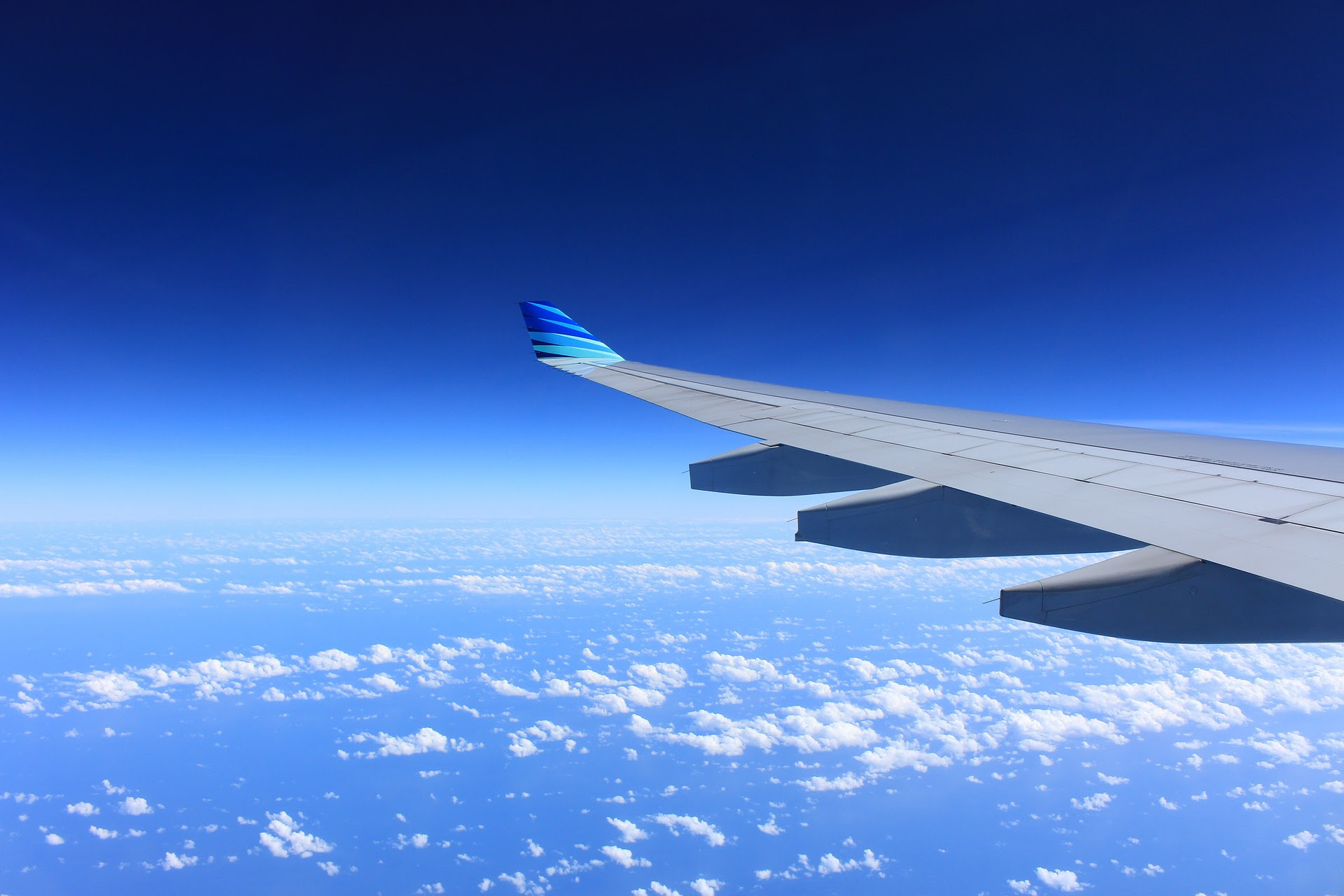
By Adedapo Adesanya
The Federal Competition and Consumer Protection Commission (FCCPC) says its investigation uncovered how airlines manipulated flight fares and fixed prices arbitrarily during the last Christmas and New Year’s holidays.
The findings, contained in an interim report released on Thursday by the commission’s department of surveillance and investigations, compared domestic airline pricing from the December 2025 festive period with post-peak January 2026 fare levels.
The FCCPC, in a statement signed by its director of corporate affairs, Mr Ondaje Ijagwu, said it established cases of price fixing by local airlines, documented abuse during the festive season, and would soon begin a probe of foreign airlines, following its ongoing country-wide investigation, which was announced earlier in January.
“A review undertaken by the Federal Competition and Consumer Protection Commission (FCCPC) has uncovered patterns of price manipulation perpetrated by some local airlines during the last festive season. The forensic exercise benefitted from data collated by the commission from airlines operating local routes in the country,” the report said.
The report compares domestic airline pricing from the December 2025 festive period with post-peak January 2026 fare levels.
The FCCPC’s preliminary analysis indicated that fares recorded during the December peak period were materially higher than those observed in the post-peak period across several routes despite relative stability in critical operating variables such as fuel price, government taxes and foreign exchange.
“The differences observed in fares therefore appear to reflect airlines’ arbitrary pricing decisions, including yield management and capacity allocation, rather than any variation in regulatory fees,” the report said.
It also noted that route-level analysis showed that higher fares coincided with periods of reduced seat availability during predictable seasonal demand peaks. On some high-density routes, peak fares were clustered within relatively narrow ranges across several operators.
It noted that on certain corridors, such as Abuja-Port Harcourt, peak fares were several times higher than corresponding post-peak levels. “On selected routes, the difference in the price of a single ticket reached approximately N405,000. Median fares across the sampled routes also rose markedly during the festive window when compared with post-peak benchmarks,” it said.
The report identified the relevance of Sections 59, 72, 107, 108, 124 and 127 of the Federal Competition and Consumer Protection Act 2018, which address the prohibition of agreements in restraint of competition, the prohibition of abuse of a dominant position, the offence of price-fixing, conspiracy to commit offences under the Act, the right to fair dealings, and the prohibition of unfair, unreasonable or unjust contract terms.
The FCCPC, however, recognised that seasonal demand pressures, scheduling constraints and fleet utilisation might also affect pricing during the peak travel period. It added that these actors remain under consideration as part of the commission’s ongoing review.
Commenting on the release of the interim report, the executive vice chairman and chief executive officer of the FCCPC, Tunji Bello, said the review was part of the commission’s statutory responsibility to promote competitive markets and safeguard consumers.
“This assessment is intended to provide clarity on pricing behaviour during predictable peak travel periods. The Commission’s role is not to disrupt legitimate commercial activity, but to ensure that market outcomes remain consistent with competition and consumer protection principles under the law,” Mr Bello said.
He noted that the commission was conducting further structural and route-level analysis before reaching any conclusions.
“It is important to emphasise that this is an interim report. Our next action will be dictated by the full facts established at the end of the review exercise. Then, the Commission will decide whether any regulatory guidance, engagement or enforcement steps are necessary, strictly in accordance with the law,” he said.
Bello further announced that foreign airlines would come under investigation by the FCCPC once the ongoing review of local airlines was concluded.
He noted that the probe of the foreign airlines would be in view of widespread complaints of exploitative fares they allegedly charge Nigerians on certain routes compared to fares in neighbouring countries of equal distance.
Travel/Tourism
FAAN Traces Source of Lagos Airport Fire to Server Room
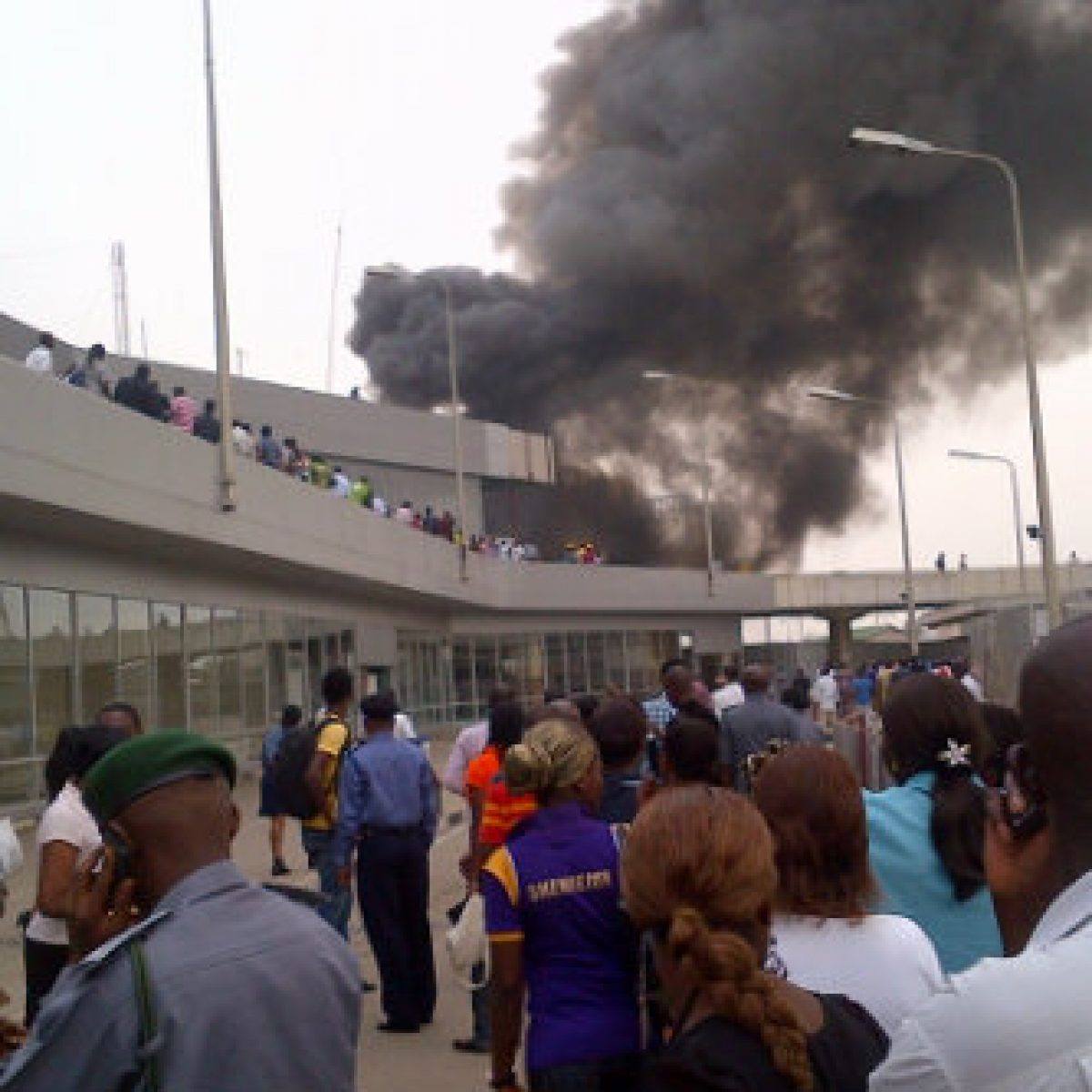
By Modupe Gbadeyanka
The Federal Airports Authority of Nigeria (FAAN) has disclosed that the fire incident at Terminal 1 of the Murtala Muhammed International Airport (MMIA), Lagos, on Monday originated from the server room on the first floor of Terminal 1.
In a statement in the wee hours of Tuesday, the agency confirmed that six casualties were recorded, involving three males and three females.
“A total of six casualties, comprising three males and three females, were recorded, all of whom are in stable condition. One affected individual has been transferred to the FAAN Headquarters Hospital for further medical evaluation and remains stable,” a part of the statement said.
FAAN noted that emergency response operations remain active, with coordinated firefighting, rescue, and safety teams continuing containment and recovery efforts.
A crane was successfully deployed to support rescue operations at the Control Tower, and all 14 persons initially trapped have been safely rescued and fully evacuated from the facility, it added.
The organisation disclosed that as an additional safety precaution, the sixth floor of the affected facility has been completely evacuated to support ongoing emergency operations and risk mitigation, adding that the fire within the departure hall is now largely under control, while responders continue close monitoring to prevent any spread to adjoining sections of the terminal.
“In line with established safety protocols, the airspace remains temporarily closed,” it stated, confirming that all emergency procedures were promptly activated and continue to collaborate with relevant emergency and support agencies to safeguard lives, infrastructure, and operational integrity.
Also, the statement revealed that the Nigerian Airspace Management Agency (NAMA) is actively working to establish a temporary Control Tower to enable the safe and timely restoration of airport operations as soon as practicable.
-

 Feature/OPED6 years ago
Feature/OPED6 years agoDavos was Different this year
-
Travel/Tourism10 years ago
Lagos Seals Western Lodge Hotel In Ikorodu
-

 Showbiz3 years ago
Showbiz3 years agoEstranged Lover Releases Videos of Empress Njamah Bathing
-

 Banking8 years ago
Banking8 years agoSort Codes of GTBank Branches in Nigeria
-

 Economy3 years ago
Economy3 years agoSubsidy Removal: CNG at N130 Per Litre Cheaper Than Petrol—IPMAN
-

 Banking3 years ago
Banking3 years agoSort Codes of UBA Branches in Nigeria
-

 Banking3 years ago
Banking3 years agoFirst Bank Announces Planned Downtime
-

 Sports3 years ago
Sports3 years agoHighest Paid Nigerian Footballer – How Much Do Nigerian Footballers Earn




